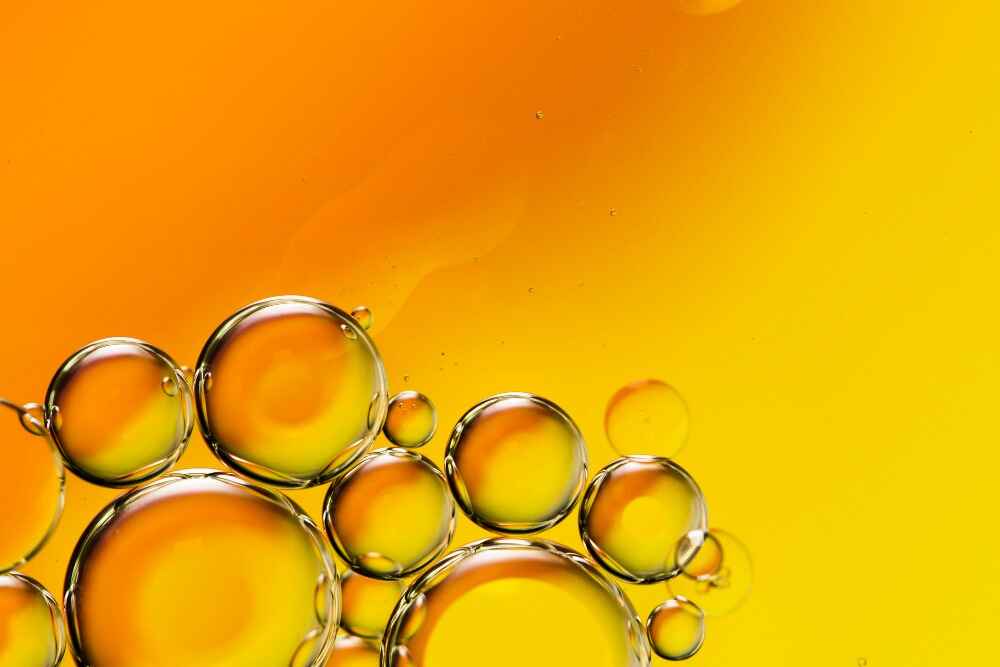Welcome to the world of oil separators! If you’ve ever wondered how industries keep their machinery running smoothly and efficiently, then this blog post is for you. Today, we’ll dive into the fascinating realm of oil separators – what they are, how they work, and why they’re so important in various applications.
So, what exactly is an oil separator? It’s a device designed to separate oil from different substances such as air or water. These nifty machines play a vital role in many industries by ensuring that unwanted oils are removed before it can cause damage or contamination. Whether it’s in automotive workshops, manufacturing plants, or even wastewater treatment facilities – oil separators are the unsung heroes working behind the scenes to maintain operations at peak performance.
Curious about how these wonders of engineering actually function? Let’s take a closer look at how an oil separator works and uncover its inner workings!
What is an Oil Separator?
An oil separator, also known as an oil-water separator or air-oil separator, is a device designed to remove unwanted oils and contaminants from various substances. It’s like a filtration system on steroids! These separators are commonly used in industries where the presence of oil can be detrimental to machinery or processes.
In simple terms, an oil separator works by utilizing the difference in density between oil and other substances. When a mixture flows into the separator, it undergoes a series of physical processes that separate the oil from water or air. The separation occurs through mechanisms such as gravity settling, coalescence (where droplets combine to form larger particles), and filtration.
One key advantage of using an oil separator is its ability to prevent pollution and environmental damage. In industrial settings where oily waste water is generated, these separators ensure that only clean water is discharged back into the environment. This helps maintain ecological balance while adhering to strict regulations.
Furthermore, employing an oil separator can significantly prolong the life of equipment and machinery. By removing harmful oils before they have a chance to circulate within systems, maintenance costs are reduced, downtime becomes less frequent, and overall efficiency improves.
Oil separators come in various types depending on their specific application. For instance, there are air-oil separators used in compressed air systems to remove lubricating oils that may contaminate downstream processes or cause operational issues. On the other hand, there are industrial-grade separators used in manufacturing plants for separating oils from wastewater streams.
Regular maintenance for your chosen type of oil separator is crucial for optimal performance. This includes routine inspections for signs of wear or clogging and ensuring proper disposal of collected materials according to local regulations.
When selecting an appropriate oil separator for your needs, factors such as flow rate capacity should be considered along with any specific industry requirements or standards applicable to your operation.
In conclusion (as per instruction), understanding what an oil separator does and its importance can help you make informed decisions for your industry or application. With the ability to prevent pollution,
How Does an Oil Separator Work?

An oil separator, also known as an oil-water separator or air-oil separator, is a vital component in many industrial and commercial applications. But how exactly does it work?
At its core, an oil separator functions by separating oil from water or other liquids. This is achieved through a combination of gravity and mechanical processes.
When contaminated liquid enters the oil separator, it goes through a series of baffles and filters designed to slow down the flow. This allows any suspended solids or heavier oils to settle at the bottom of the tank.
Next, the liquid passes through coalescing media or plates that attract smaller droplets of oil and encourage them to merge into larger ones. These bigger droplets then rise to the surface due to their buoyancy.
The separated oil can be skimmed off from the top layer while clean water or liquid is discharged from another outlet for further treatment or reuse.
An oil separator works by utilizing various physical mechanisms to separate different components based on their density and properties. It’s a precise process that helps maintain environmental compliance and protects equipment from potential damage caused by oily substances.
The Benefits of Using an Oil Separator
Using an oil separator can provide numerous benefits for various industries and applications. One of the primary advantages is the removal of oil from wastewater or air streams, which helps to protect the environment and comply with regulations.
By effectively separating oil from water or air, an oil separator prevents contamination and pollution. This can be especially crucial in industrial settings where there may be a high volume of oily wastewater generated.
Furthermore, using an oil separator can help reduce maintenance costs for equipment such as pumps, pipes, and valves. Oil-free water or air ensures that these components operate efficiently without clogging or damage due to lubricant buildup.
In addition to environmental protection and cost savings, utilizing an oil separator also enhances overall system performance. By removing contaminants like oil, the efficiency of downstream processes like filtration units or treatment systems improves significantly.
Another benefit is increased safety in work environments. Oil separators minimize the risk of accidents caused by slippery surfaces due to spilled oils. This is particularly important in areas where employee safety is a priority, such as manufacturing plants or workshops.
Moreover, using an effective oil separator contributes to extending the lifespan of equipment involved in wastewater treatment processes. With reduced wear and tear on machinery components caused by oily substances, repairs are less frequent and replacement costs are minimized over time.
Incorporating an efficient oil separator into your operations brings numerous advantages including environmental compliance, cost savings through reduced maintenance requirements, improved system performance, enhanced workplace safety,and prolonged equipment life expectancy
Types of Oil Separators and Their Uses
Oil separators come in various types, each designed to cater to specific needs and applications. Let’s explore some of the common types and their uses.
1. Gravity Oil Separator:
This type of oil separator relies on gravity to separate oil from water. It is commonly used in industrial settings where large volumes of oily wastewater need to be processed. The gravitational force allows the heavier oil to settle at the bottom while clean water flows out from the top.
2. Coalescing Oil Separator:
Coalescing oil separators use specialized filtration media or plates that help trap and remove smaller oil droplets from water. They are widely used in automotive service centers, car wash facilities, and other places where there is a high concentration of oils and greases in wastewater.
3. Dissolved Air Flotation (DAF) System:
A DAF system utilizes dissolved air bubbles to separate oil particles from water efficiently. This type of oil separator is commonly found in wastewater treatment plants, refineries, petrochemical industries, and food processing plants.
4. Centrifugal Oil Separator:
Centrifugal separators work by spinning the mixture at high speeds, causing solids like dirt or debris to collect around the outer edge while clean fluid moves toward the center for discharge. These separators are effective in removing larger-sized oils or contaminants from industrial processes.
5 Membrane Filtration Systems:
Membrane filtration systems employ ultrafiltration or microfiltration membranes that can capture even tiny traces of oils or hydrocarbons present in water streams with exceptional efficiency.
Each type of oil separator has its own set of advantages based on factors such as flow rate requirements, space availability, maintenance considerations, budget constraints etc., Therefore it’s crucial to assess your specific needs before choosing an appropriate solution!
Remember that regular maintenance will ensure optimal performance regardless of which type you choose!
Importance of Regular Maintenance for Oil Separators
Regular maintenance is crucial for ensuring the optimal performance and longevity of oil separators. Neglecting proper maintenance can result in a host of issues that can be costly to repair and may even lead to system failure.
One important aspect of regular maintenance is conducting routine inspections. These inspections allow technicians to identify any signs of wear, damage, or potential leaks that could impact the efficiency of the oil separator. By catching these issues early on, they can be addressed promptly before they escalate into larger problems.
Another key component of maintenance is cleaning and servicing the oil separator regularly. Over time, debris such as dirt, grease, and sludge can accumulate within the separator’s components and hinder its functionality. Regular cleaning helps prevent blockages and ensures smooth operation.
Additionally, it is essential to monitor fluid levels in the oil separator regularly. Insufficient or contaminated fluids can decrease its effectiveness in separating oil from air or water streams. By maintaining proper fluid levels and quality through regular checks and replacements when necessary, you ensure optimal performance.
Furthermore, adhering to manufacturer-recommended service intervals for filter replacement is vital for maintaining efficient operation. Filters play a critical role in trapping contaminants present in air or water streams before they enter the separator unit itself. Dirty or clogged filters not only reduce efficiency but also put additional strain on other components of the system.
Ongoing monitoring through data analysis allows for the proactive identification of potential issues before they cause major disruptions or failures within your oil separation system. Regularly reviewing operating parameters such as pressure differentials can help detect abnormalities early on.
In conclusion(less than 20 words), regular maintenance plays a significant role in maximizing performance while minimizing downtime and repair costs associated with oil separators.
Choosing the Right Oil Separator for Your Needs
Choosing the right oil separator for your needs can be a crucial decision. With so many options available in the market, it’s important to consider several factors before making a choice.
You need to determine the specific requirements of your application. Different industries and processes have varying demands when it comes to oil separation. Consider factors such as flow rate, pressure levels, and types of contaminants that need to be removed.
Take into account the size and space limitations of your facility. Oil separators come in various sizes and designs, so choosing one that fits within your available space is essential.
Additionally, consider the maintenance requirements of different oil separators. Some units may require more frequent cleaning or replacement of filters compared to others.
Another factor to consider is the reputation and reliability of the manufacturer or supplier. Look for companies with a proven track record in producing high-quality oil separators that meet industry standards.
Don’t forget about cost-effectiveness. While price shouldn’t be the sole determining factor, it’s important to find an oil separator that offers good value for money over its lifespan.
By carefully considering these factors and conducting thorough research on different options available in the market, you can choose an oil separator that best suits your needs and ensures optimal performance for your application without breaking budget constraints
Conclusion
An oil separator is a vital component in many industries and applications where air or gas compression is involved. It plays a crucial role in removing harmful oil particles from the compressed air or gas, ensuring its quality and protecting downstream equipment.
By efficiently separating oil droplets from the compressed air or gas stream, an oil separator helps to extend the lifespan of pneumatic equipment, minimize downtime due to maintenance issues, and improve overall system performance. It also aids in reducing energy consumption and operating costs by preventing unnecessary wear and tear on machinery.
When choosing an oil separator for your specific needs, it’s essential to consider factors such as flow rate requirements, operating pressures, filtration efficiency, maintenance ease, and compatibility with your existing system.
Regular maintenance of the oil separator is equally important to ensure optimal performance. This includes scheduled inspections, cleaning or replacing filters when necessary, monitoring pressure differentials across the unit for any abnormalities, and addressing any potential issues promptly.
So whether you’re working in manufacturing plants, automotive workshops or even dental offices that rely on compressed air systems – understanding what an oil separator is and how it functions can make all the difference in maintaining efficient operations while prolonging the life of your equipment.
Remember that investing in high-quality oil separators from reputable manufacturers will provide long-term benefits by improving productivity while minimizing costly repairs. So don’t overlook this essential component – let an efficient oil separator be at the heart of your compressed air system!
❤️ READ MORE VALUABLE BLOGS AT BUSINESS FUNDA 🚀




